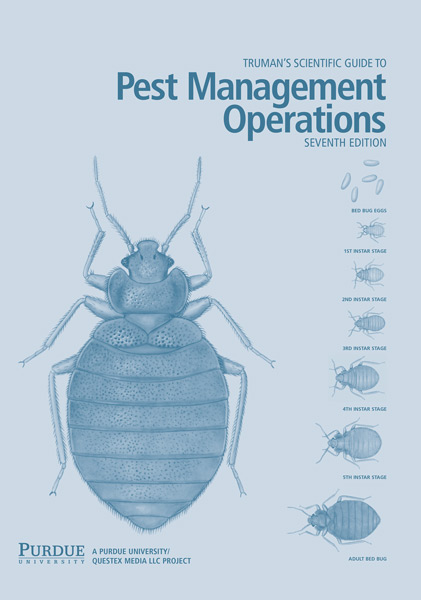
Kimberly Stockment, program administrator for Purdue University’s Online Learning programs.
This month’s question-and-answer session is with Kimberly Stockment, program administrator for Purdue University’s Online Learning programs, based in West Lafayette, Ind. Among the offerings is the Introduction to Urban and Industrial Integrated Pest Management (IPM) Course for pest management professionals (PMPs). This course, as well as the Advanced Urban/Industrial IPM and Food Plant IPM, all use what many consider to be the bible of the industry, Truman’s Scientific Guide to Pest Management Operations.
1. The IPM Course Program was introduced more than 50 years ago as a correspondence course. In 2016, it won the “Celebration of Excellence Award for Mature Programs” from the University Professional and Continuing Education Central Region group. How would you say it has evolved in recent years?
Purdue faculty are continually evaluating the IPM courses to keep them as up-to-date as possible. For example, the turfgrass course recently was updated to keep up with industry changes. Likewise, we’re seeing the switch to more online coursework. While we still offer correspondence and do a fair share of our courses that way, we’re definitely seeing an upward trend in the online version of the courses.
2. Why should a PMP enroll in this program?
Our courses are a great way to dive into this industry. In addition, participants receive credit toward their recertification (if applicable) and a certificate of completion from Purdue University. Having certifications and continuing education as part of your toolkit is never a bad idea.
We help you grow your industry knowledge, which can lead to promotions, raises, and more. With the flexibility of starting when you want — working online or in your home on your own schedule — these courses are a great fit for every type of learner.
3. If I am a pest control business owner, and I want my techs to take this course, what is an easy way to get the ball rolling?
The best place to find information is by visiting our website. There you can find course descriptions, requirements and online registration for both the correspondence and online courses. The website also has a downloadable brochure, as well as an interactive state map to see how our courses are accepted in your state for recertification.
4. How many classes do you recommend a student take at a time, while still holding his or her full-time job? Should a student try to take one course, for example, or do many participants take two or more simultaneously?
It depends on the course. If students are enrolled in our Introduction or Advanced course, they likely will want to take one course at a time. Should they choose to take the Food Plant, Bed Bugs or Invasive courses, however, they might be able to take more than one at a time.
Our courses are self-paced, which means you can sign up anytime during the year. There aren’t any deadlines by which a student must enroll per semester, for instance. Learners have one year to complete the course from the date of purchase. If they find they are running out of time, they can pay $50 and receive a six-month extension.
5. What would you want interested PMPs to know before digging in?
We offer a wide variety of courses. Perhaps they’ve already taken our IPM introduction course, and assume that’s all we have. But we also offer specialty courses on bed bugs, invasive borers, food plant pests, wildlife, and public and industrial buildings. The courses for bed bugs and invasive borers can be completed fairly quickly, so they’re a great addition to a seasoned professional’s toolkit. If, after taking the introductory course, you want to expand your general pest knowledge, our advanced course is a great option.
In addition, these courses are designed and written by some of the best professors in the industry. Dr. Gary Bennett, BCE, plays a large role in designing the course materials. He also collaborates with other professors and industry leaders to bring a broad perspective to the coursework. We pride ourselves on having one of the most comprehensive continuing education programs.

Leave A Comment